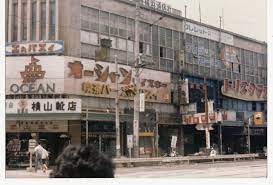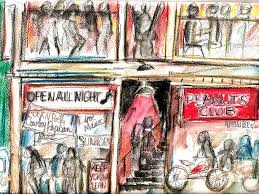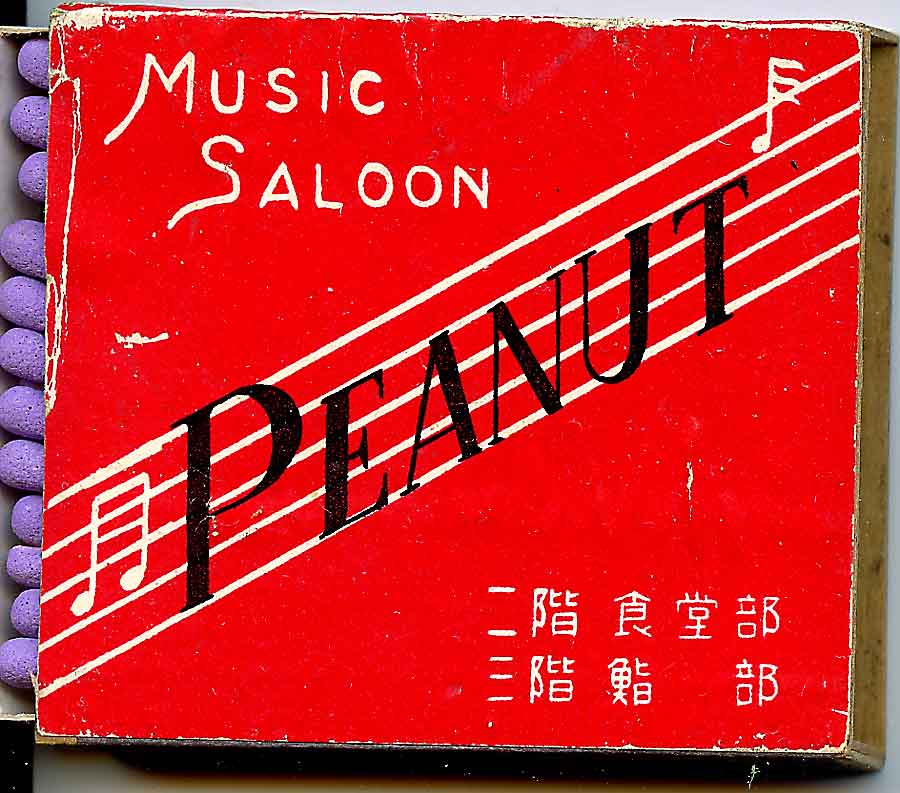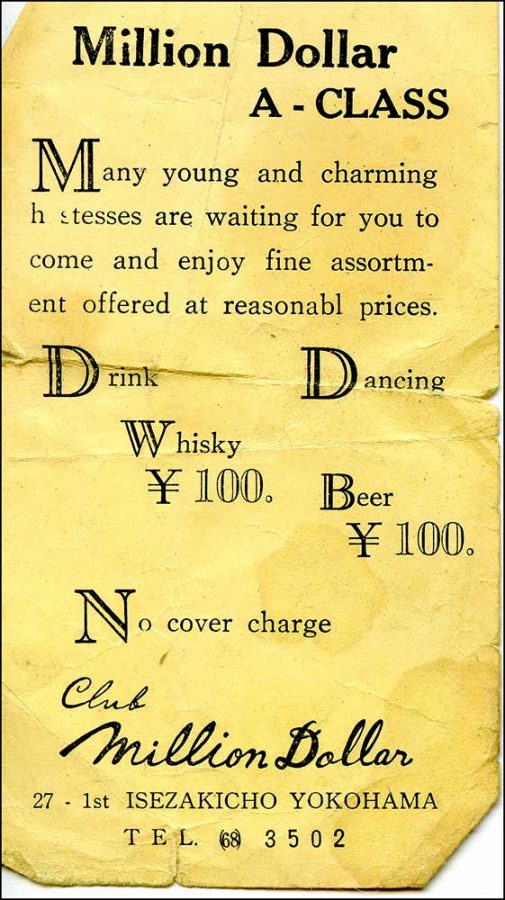
At dock we were free to go after our day’s work. Most importantly I was released from punishment detail and could join the crowd heading for town. After one pass through the dock gates to get our passports stamped all we had to do was wave our documents anytime thereafter.
This was boom times for Japan; the docks were so busy and crowded that security suffered. Anything and any body could be smuggled aboard and the Belnor took on a few new residents. Most of these women were the ‘girl in every port’ variety and were familiar with the ship and crew. Day or night I never knew who would be sharing the laundry or shower room with me. Heavy drinking was in style again and the ship was sinking into seediness.
Someone, before we left Canada, had told us that the ‘must go’ place in Yokohama was called China Town and the centre of activity was a western bar. That’s where we went the first night. Taxi drivers know where sailors want to go and their few words of English included all the bar names in this infamous location. The bar was built like a reverse wedding cake with tier after tier of circular balcony looking down on a central stage. Japanese bands dressed in western duds would play and sing cowboy songs in distorted English.

We settled in with a table full of Japanese beer and Whiskey as some of the old timers on the crew loosened their tongues and began to tell some horror stories about our clean and tidy ship. A history blacker than we could have ever imagined.

Yes, this was the bar. These are matches. Don’t ask me why I saved them. I don’t know!
—————————-To be continued———————————-


